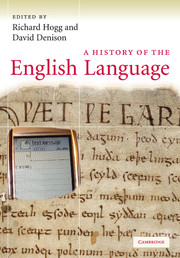6 - Names
Published online by Cambridge University Press: 05 September 2012
Summary
Theoretical preliminaries
The status of proper names
Names is a technical term for a subset of the nominal expressions of a language which are used for referring (‘identifying or selecting in context’) and, in some cases, for addressing a partner in communication. Nominal expressions are in general headed by nouns. According to one of the most ancient distinctions in linguistics, nouns may be common or proper, which has something to do with whether they denote a class or an individual (e.g. queen vs Victoria), where individual means a single-member set of any sort, not just a person. Much discussion has taken place about how this distinction should be refined to be both accurate and useful, for instance by addressing the obvious difficulty that a typical proper noun denoting persons may denote many separate individuals who bear it, and that common nouns may refer to individuals by being constructed into phrases (the queen). I will leave the concept [± proper], applied to nouns, for intuitive or educated recognition before returning to discussion of the inclusive concept of proper names directly. Proper nouns have no inherent semantic content, even when they are homonymous with lexical words (Daisy, Wells), and many, perhaps all, cultures recognise nouns whose sole function is to be proper (Sarah, Ipswich). Typically they have a unique intended referent in a context of utterance.
- Type
- Chapter
- Information
- A History of the English Language , pp. 312 - 351Publisher: Cambridge University PressPrint publication year: 2006
- 82
- Cited by



